Always Wash New Underwear And 9 Other Ways To Prevent Vaginal Infections
Always Wash New Underwear Before Wearing And 9 Other Ways To Prevent Vaginal Infections - Page 6
Share the post
Share this link via
Or copy link

Source: Delmaine Donson / Getty
Do you ever think about how insane it is that you have the vessel to bring about life right there between your legs? You sit on it. You ride a bicycle on it. You shave it. You put cute underwear over it, and you allow other people to interact with it in a number of ways – like during sex, or simply when you let your esthetician wax you. It’s easy to forget just how truly magical and fragile the vagina is. As an opening to your body, it really is delicate. It’s the entryway to your reproductive organs. It’s a gateway to your entire body. Keeping it in good condition is rather important. You know this because of how uncomfortable you’ve been when your vagina wasn’t in good shape. A urinary tract infection, bacterial vaginosis, a yeast infection…these are things that can plague the vagina, and they’re quite uncomfortable.
You have a health routine for your mouth, your skin, your gut — doesn’t your vagina deserve one, too? That’s one area of the body that proves the saying, “An ounce of prevention is worth a pound of cure” to be very true. When you have to go to the doctor to get a prescription for an antibiotic while fighting frequent and burning urination, you likely find yourself wishing you’d just peed after sex or taken your probiotics more. Your lady parts deserve some love. Here are tips for keeping your vagina healthy.

Source: Eleonora Viviani / EyeEm / Getty
Always wash new underwear
Related Stories
Apparel company Tommy John surveyed thousands of customers and found that 42 percent don’t wash new clothes before wearing them, and 35 percent don’t wash new underwear before putting it on. This video from the show The Doctors might have you thinking twice about that. Researchers collected underwear from bins at several different women’s stores, sent them to a lab, put them under a microscope, and found a lot of nasty stuff, including fecal organisms and staph (that causes staph infections). Think of how many individuals run their hands through underwear in stores. People who may not wash their hands and can be carrying all sorts of germs. You have to wash new panties before wearing them.
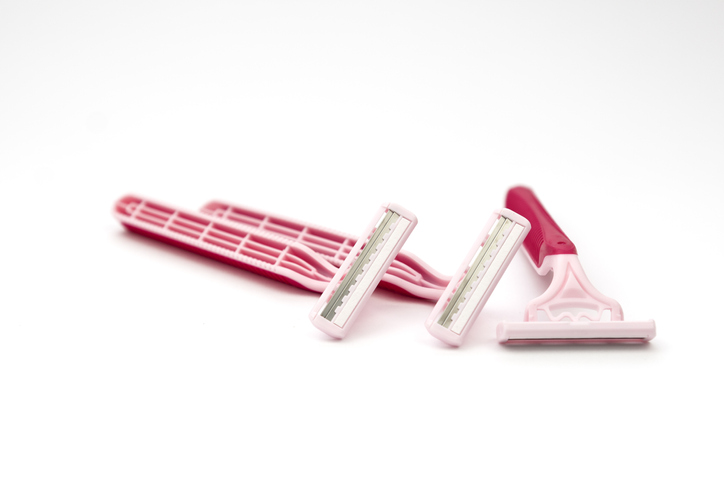
Source: Rosa María Fernández Rz / Getty
Consider keeping your bush
Love MadameNoire? Get more! Join the MadameNoire Newsletter
We care about your data. See our privacy policy.
Your pubic hair exists for a reason. Whatever is behind your decision to keep it or get rid of it, know that whoever designed us put our bushes there to serve a purpose – in the same way the hair on your head serves a purpose of protecting the skin on your head from sun damage and keeping your scalp warm. Your pubic hair not only helps to keep bacteria away from your vagina, but it also reduces friction against this sensitive skin. When we go bare down there, we expose our outer vagina to the sometimes rough fabrics of our underwear. Furthermore, when you do shave it down entirely, the regrowth causes you to itch. And every time you scratch that itch, you risk a cut, which makes you more prone to infection.
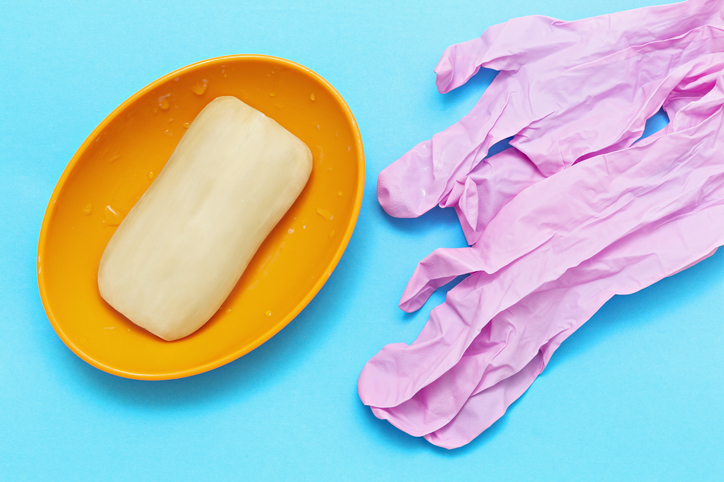
Source: Vladimir Godnik / Getty
Keep soap out of there
If you suffer from recurring bacterial vaginosis, you might turn to intimate soaps to deal with the embarrassing odor that comes with it. Unfortunately, those very soaps might be throwing off your pH balance and putting you at risk for bacterial vaginosis, so the believed cure perpetuates the problem. One study found that a special lactic acid-based intimate soap can be safe to use around the area. But in general, it’s important to remember that the vagina is a self-cleaning organism. It produces natural secretions that help keep the area clean. Unfortunately, douches remove those natural secretions, disrupting the delicate balance and making it hard for the vagina to clean itself.
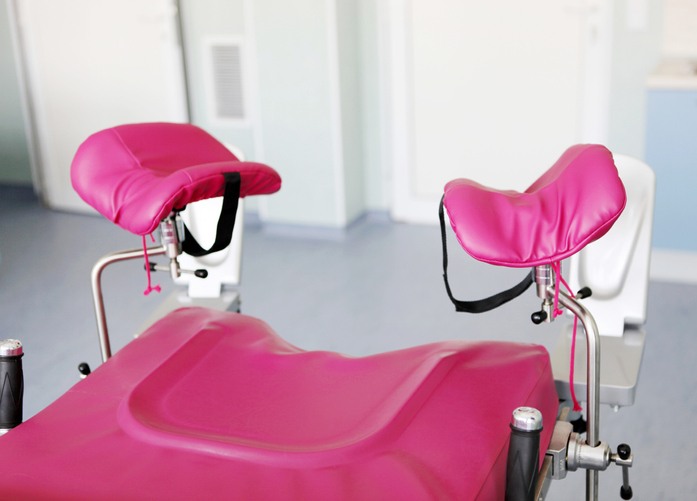
Source: Vladimir Nenov / EyeEm / Getty
Visit your gynecologist regularly
Keep up with your gynecologist visits. Treat them as important as your regular physician’s visits or dentist’s visits (which hopefully you’re taking seriously, too). While your cervix and your vagina are not one in the same, many issues with the cervix are detected early through your pap smear, which pertains to your overall Well Women’s visit. Deaths from cervical cancer in the U.S. are declining, and that’s because of the access to things such as pap smears, cervical biopsies, and when necessary, LEEP procedures to remove precancerous cells. Your vagina can also communicate with you, as early precancerous lesions on the cervix can be accompanied by irregular discharge or bleeding.

Source: Anna Efetova / Getty
Treat yourself to some good lube
First off, get comfortable using more lubricant when you have sex. Even if you still produce plenty of your own natural lubricant, sex is just more fun with a little extra help – and edible lube can be used for oral, which can make it more enjoyable for you and your partner. But the truth is that, as you get older, your estrogen levels change, and your estrogen levels are strongly linked to vaginal lubrication – and vaginal dryness. So it’s a good idea as a woman to stock up on lube to prevent vaginal tears during sex. It’s also important to know which lubricant is best for your body, which is something your gynecologist can possibly help you figure out.

Source: SDI Productions / Getty
Don’t ignore symptoms
Don’t ignore new or irregular symptoms in any part of your body. It’s tough to say with a clean conscience that any part of your body should take precedence, but it is really important to report irregular symptoms concerning your vagina right away. Keep in mind that an untreated urinary tract infection can lead to a kidney infection, which can ultimately be life-threatening because it can cause blood poisoning. So if you have that feeling of burning and frequent urination, call your doctor. If you notice symptoms of bacterial vaginosis such as odor or excess discharge, report these, as untreated BV can make you more susceptible to STDs.

Source: LeoPatrizi / Getty
Get moisture-wicking workout clothes
Gym rats need to be extra careful about the workout clothes you pick out and stay in. It’s important that sweat doesn’t pool in the area, get trapped, and stay there for hours. You need moisture-wicking fabric, and hopefully, items that breathe. Loose shorts with mesh are a much better alternative to tight synthetics. Make sure to remove your workout clothes as soon as you’re finished exercising so bacteria doesn’t fester down there. Don’t run errands and grab lunch with a girlfriend in the same leggings you just hit the treadmill in. Fitness experts have offered helpful insight into how to select and care for workout clothes.

Source: wilatlak villette / Getty
Get plenty of probiotics
Your vagina, like your gut, relies on a specific and delicate balance of good bacteria in order to flourish. Most times when something goes wrong with your vagina from BV to a UTI, a disruption of this bacteria is to blame. Our diets don’t do us many favors in this area, but taking probiotic supplements can help. And there are certain foods that are high in probiotics, like yogurt, kombucha, and pickled items such as kimchi or simple pickles. There are a number of foods that are high in probiotics. And don’t forget to be diligent about taking these when taking antibiotics to offset the side effects.
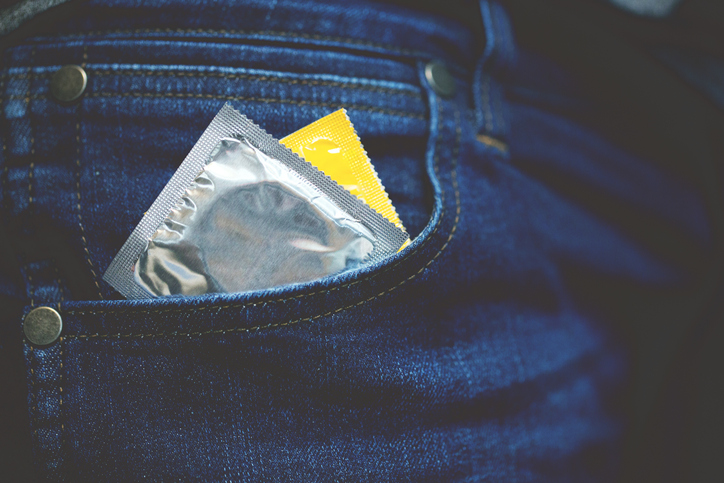
Source: Rattanakun Thongbun / EyeEm / Getty
Pay attention to birth control sensitivities
Not all birth control is right for everybody. You may find that you’re itching or burning after the use of certain kinds out there. Some women have an allergic reaction to spermicide, which ranks pretty low in effectiveness as research shows 28 percent of women who rely on it face accidental pregnancy. But then again, certain condoms irritate some users, so it’s important to know about your different options. Overall, don’t just grin and bear it if you don’t respond well to a certain form of birth control. Anything that you put in or near your vagina should be very gentle on your body.
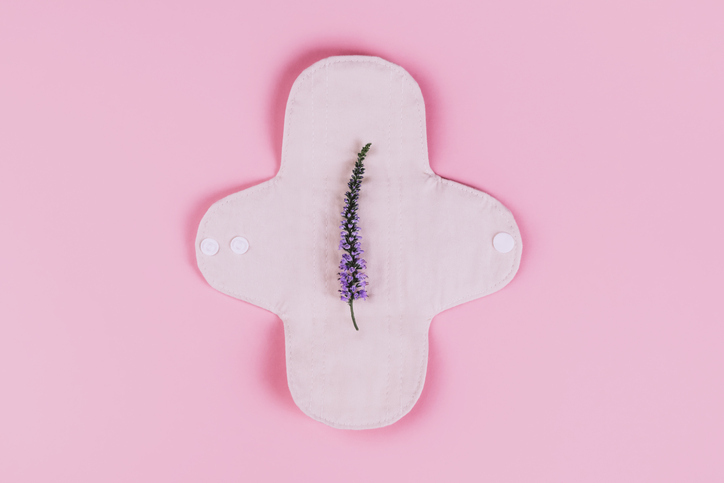
Source: Olena Ruban / Getty
Avoid scented anything
Even though we want to feel as fresh as possible down south during our periods (and always), it’s rather counterintuitive that a number of feminine hygiene products are scented. Perfumes can be rough on that delicate area, disrupting the pH balance and leaving you with an odor problem that goes beyond a little period blood. So stick to unscented pads and tampons, be sure to change them out every four to six hours, and clean the area with gentle wipes between changes to stay fresh. Also, beware of scented toilet paper. Often we buy it without realizing it’s scented, but toilet paper with a particular odor can be tough on your vagina. It’s also a slightly silly product – it’s going down the toilet the moment after you use it so why does it need to be scented?
-

Meet Dominique Fils-Aimé, The Haitian-Canadian Star Redefining Jazz For A New Generation: ‘This is My Vision' [Exclusive]
-

Cooking With Purpose — How Brittney Williams Honors Her Caribbean Roots Through Food
-

9 Famous Lesbian Women Who Were Married To Men
-

Bucket Baddies With Big Energy — The 30 Hottest NBA Players In The Game Right Now











